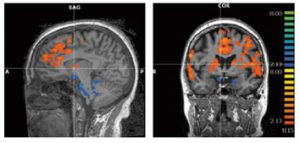TRANSCENDENTAL MEDITATION REDUCES STRESS, IMPROVES INDIVIDUAL BEHAVIOR
Transcendental Meditation (TM) is an easily learned mental procedure, practiced for 20 minutes twice daily sitting comfortably with the eyes closed. The TM technique provides the individual with the experience of a unique, fourth major state of consciousness (distinct from waking, dreaming, or sleep states of consciousness)—a state of deep physiological relaxation and heightened mental alertness. Practice of the technique does not involve religion, philosophy, or change in lifestyle.

Reducing anxiety; promoting a state of deep relaxation
According to research, the Transcendental Meditation technique reduces acute stress far more effectively than other available meditation or relaxation techniques. For example, in a meta-analysis of 142 published scientific articles studying various meditation and relaxation methods, the TM technique was more than twice as effective as other methods in reducing trait anxiety1 and produced a correspondingly deeper state of physiological relaxation.2
Activating the “higher brain,” deactivating the “fear center”
Equally important, Transcendental Meditation activates the prefrontal cortex (“higher brain”) and strengthens communication between the prefrontal cortex and different areas of the brain, while deactivating the amygdala (“fear center”). As a result, even previously stressed or traumatized individuals display enhanced executive functions, with less impulsive, aggressive, violent behavior.
For example, research shows Transcendental Meditation practice reduces symptoms of combat PTSD among veterans by 50 percent within eight weeks of learning the technique,3 and sharply reduces recidivism rates among prison inmates,4,5 substance abuse,6,7 and stress-related diseases, including a 66 percent reduction in heart attack, stroke, and death compared to controls.8
In addition to these beneficial effects resulting from individual practice of TM, scientific research has further shown that when it is practiced in groups, similar benefits extend to the whole population.
Continue reading about Group Practice
References
- Journal of Clinical Psychology, 45(6), 957–974, 1989
- American Psychologist, 42, 879–881, 1987.
- Military Medicine, 176(6), 626–630, 2011.
- Journal of Offender Rehabilitation, 36(1–4), 161–180, 2003.
- Journal of Offender Rehabilitation, 36(1–4), 181–203, 2003.
- Alcoholism Treatment Quarterly, 11, 13–87, 1994.
- International Journal of the Addictions, 26, 293–325, 1991
- Archives of Internal Medicine, in press



